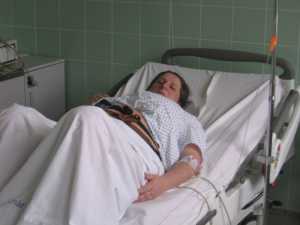MedicalResearch.com Interview with:
 Dr Denholm Aspy PhD
School of Psychology
University of Adelaide
MedicalResearch.com: What is the background for this study? What are the main findings?
Response: There are many anecdotal reports of vitamin B6 being used to enhance dream recall, and poor dream has sometimes been considered a possible sign of vitamin B6 deficiency by some clinicians. However, until now there was only a single study that investigated this scientifically. This was a small pilot study in 2002 that included only 12 participants. My new study now provides the strongest evidence to date that vitamin B6 does in fact enhance dream recall. The double-blind placebo-controlled study included 100 participants from around Australia who took either Vitamin B6, a B vitamin complex (with a range of other B vitamins as well), or placebo directly before bed for five days. Participants recorded their dream recall using a logbook containing a range of measures each morning. Results showed the people who took B6 recalled around 64% more content from their dreams on average compared to the placebo group, and that this had no negative impact on sleep quality.
(more…)
Dr Denholm Aspy PhD
School of Psychology
University of Adelaide
MedicalResearch.com: What is the background for this study? What are the main findings?
Response: There are many anecdotal reports of vitamin B6 being used to enhance dream recall, and poor dream has sometimes been considered a possible sign of vitamin B6 deficiency by some clinicians. However, until now there was only a single study that investigated this scientifically. This was a small pilot study in 2002 that included only 12 participants. My new study now provides the strongest evidence to date that vitamin B6 does in fact enhance dream recall. The double-blind placebo-controlled study included 100 participants from around Australia who took either Vitamin B6, a B vitamin complex (with a range of other B vitamins as well), or placebo directly before bed for five days. Participants recorded their dream recall using a logbook containing a range of measures each morning. Results showed the people who took B6 recalled around 64% more content from their dreams on average compared to the placebo group, and that this had no negative impact on sleep quality.
(more…)
 Dr Denholm Aspy PhD
School of Psychology
University of Adelaide
MedicalResearch.com: What is the background for this study? What are the main findings?
Response: There are many anecdotal reports of vitamin B6 being used to enhance dream recall, and poor dream has sometimes been considered a possible sign of vitamin B6 deficiency by some clinicians. However, until now there was only a single study that investigated this scientifically. This was a small pilot study in 2002 that included only 12 participants. My new study now provides the strongest evidence to date that vitamin B6 does in fact enhance dream recall. The double-blind placebo-controlled study included 100 participants from around Australia who took either Vitamin B6, a B vitamin complex (with a range of other B vitamins as well), or placebo directly before bed for five days. Participants recorded their dream recall using a logbook containing a range of measures each morning. Results showed the people who took B6 recalled around 64% more content from their dreams on average compared to the placebo group, and that this had no negative impact on sleep quality.
(more…)
Dr Denholm Aspy PhD
School of Psychology
University of Adelaide
MedicalResearch.com: What is the background for this study? What are the main findings?
Response: There are many anecdotal reports of vitamin B6 being used to enhance dream recall, and poor dream has sometimes been considered a possible sign of vitamin B6 deficiency by some clinicians. However, until now there was only a single study that investigated this scientifically. This was a small pilot study in 2002 that included only 12 participants. My new study now provides the strongest evidence to date that vitamin B6 does in fact enhance dream recall. The double-blind placebo-controlled study included 100 participants from around Australia who took either Vitamin B6, a B vitamin complex (with a range of other B vitamins as well), or placebo directly before bed for five days. Participants recorded their dream recall using a logbook containing a range of measures each morning. Results showed the people who took B6 recalled around 64% more content from their dreams on average compared to the placebo group, and that this had no negative impact on sleep quality.
(more…)







